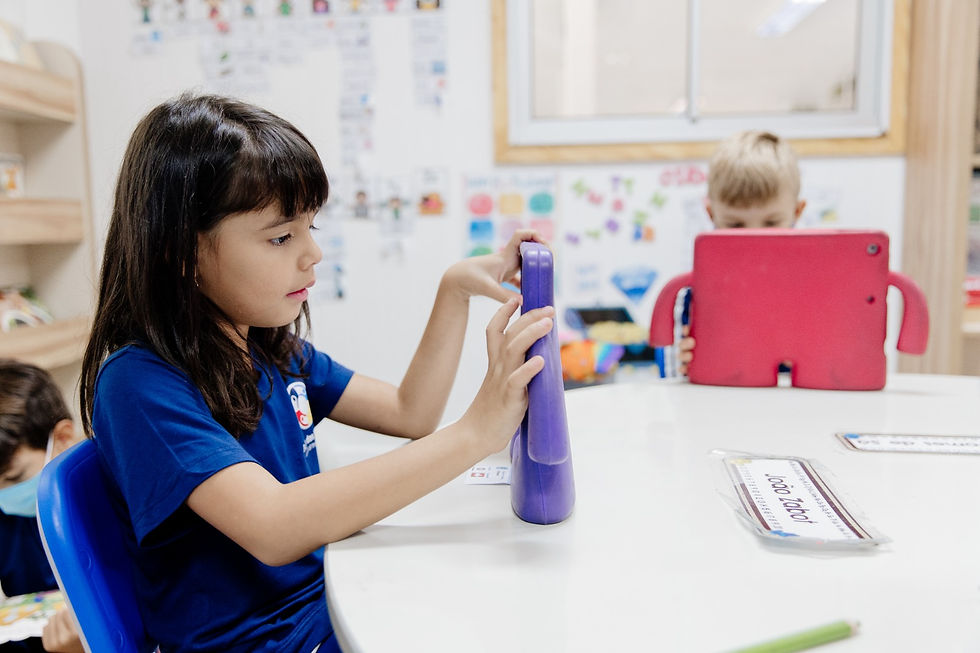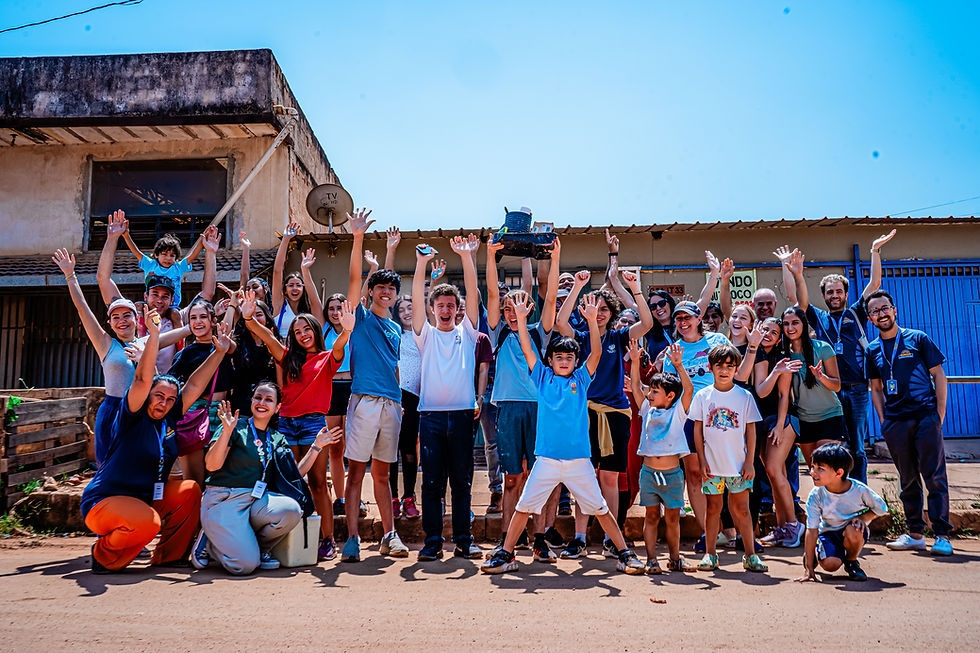Educating Individuals Who Contribute to the Global Society
- Oct 24, 2023
- 3 min read
As an international educational institution, School of the Nations is committed to providing an education that focuses on the academic, spiritual, ethical, and social development of its students.

For over 40 years, School of the Nations has pursued a mission to shape global citizens. With a curriculum that adheres to the highest academic standards and offers national and international certifications, School of the Nations distinguishes itself as a reference for educational institutions in the capital. Founded in the Federal District in 1980, its objective is to instill in each student the skills, qualities, and attributes that empower them to be proactive agents in building a better world.
Executive Director of School of the Nations, Danyel Dalmaschio, explains.
"School of the Nations adopts a holistic approach to education, meaning it concentrates on developing individuals comprehensively—academically, socially, emotionally, physically, and spiritually. Our aim is to nurture well-rounded individuals who can make positive contributions to society."

Early Childhood student, Maria Cecília, learning through innovation combined with creativity.
(Photo: School of the Nations Press Release)
In a rapidly changing world, socio-emotional skills such as critical thinking, adaptability, collaboration, and emotional intelligence are increasingly essential. “School of the Nations’ holistic approach is not merely an educational strategy but a reflection of its values and vision for its students. We recognize that genuine education isn't just about filling minds with information but about educating individuals capable of facing challenges, contributing positively to society, and leading fulfilling lives," emphasizes Danyel.

Cultivating the Future: Students in the Holistic School Environment
(Photo: Escola das Nações Press Release)
Anis Sami, Coordinator of Moral and Global Citizenship, adds, "In the next 15 years, a child entering primary school today will experience as many changes as humanity has in the last century. In an increasingly volatile, uncertain, ambiguous, and dynamic world, what competencies are required for this child to confront future challenges? Mastering content and techniques will remain important, but this must be accompanied by socio-emotional skills to interact with others, manage one’s emotions, and overcome challenges to achieve goals."
Learning Begins in Early Childhood
With the opportunity to earn up to three diplomas—the Brazilian diploma, the internationally recognized American diploma, and the AP Capstone Program diploma—School of the Nations provides students with content required by the Brazilian Ministry of Education while meeting the requirements of international accreditation agencies and the College Board organization. Preparation for these three certifications begins early, even in early childhood education.
Ludmila Luttembarck, Coordinator of Early Childhood Education, explains that the institution's pedagogical program combines academic rigor with a holistic approach, emphasizing "dual-language" instruction in English and Portuguese. Enriched by the Reggio-Emilia inspired methodology, one that aims to enhance a child's skills and holistic development, the curriculum integrates multi-sensory, project-based learning, along with core principles such as play and balanced literacy in both languages.
"The program advocates ideals of unity, positive discipline, collaborative learning, and autonomy, blending innovative educational philosophies to provide child-centered education that prioritizes both the process and the outcome," says Luttembarck.

Playful and Welcoming Space, Hallmarks of School of the Nations
(Photo: Escola das Nações Press Release)
With students from many countries, School of the Nations aims to integrate them into the highest standards of academic excellence in the classroom. The objective is to enable each individual to explore, discover, share, and develop their intellectual abilities. In practice, the educational program stimulates children's thinking to learn and appreciate the context of service to humanity.
American Diplomat, Carmen Munoz, highlights - "We were drawn to the school's values of global citizenship and dual-language education. We wanted our daughter to be exposed to both English and Portuguese, and she is now fluent in both." Her four-year-old daughter, Mia, a student in the preschool program, began her journey at School of the Nations a year ago.
David Figueroa, the American Academic Director at School of the Nations, emphasizes that the institution is committed to preparing students not only for college entrance exams but for life and social interaction. "The focus is on developing critical thinking skills that enable students to learn how to learn. In this way, students acquire knowledge and interpret the world around them autonomously and independently," says Figueroa.
Read the article on the Correio Braziliense site
Article written by journalist Gabriella Collodetti.



Comments